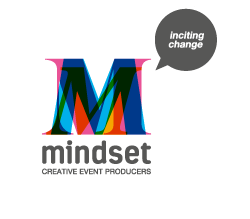Briefing a creative agency is hard. Getting your vision from paper to reality is one of the most difficult parts of the creative process.
Learning how to write a brief for an agency is the best thing clients can do to make sure they get the highest quality output from their live events and video agency. A final brief can take different forms, but it’s usually a written document. Before finalising the document however, it’s important to understand the best way to manage the briefing process.
At Mindset we’ve worked with some amazing clients, and our best results always come when they follow some surprisingly simple yet powerful guidelines when writing a brief for us.
Here are some of the biggest dos and don’ts when writing an agency brief:
Do:
1. Make it a collaborative effort from the very first meeting
A face to face meeting at the very start of the briefing and pitching process is vital for building trust and respect. Having an initial brief ready before the first meeting also means you can get that creative process going as soon as possible.
Talk through your ideas, take on board input from the agency and make the process as collaborative as possible. Having a strong, personal relationship with the agency can make or break the project.
If you don’t have anything on paper before the first meeting, make sure to follow up with a contact report so that you can start finalising the brief as soon as possible.
2. Think about quality and detail.
Keep the brief as ‘tight’ and succinct as possible, being descriptive where you need to be, but not overdoing it. Maintain your focus, and make sure to explain any difficult or abstract ideas in person.
3. Think about your audience.
Who will be reading the brief in the first instance? Is it going to the sales team, or straight to the creative teams? Whoever is leading the process in the agency needs to have a brief they can understand and translate for their team.
A good agency will always try and work around you, but consideration here can make a big difference to the speed of the process.
4. Have realistic timelines
After seeing your brief, the agency will need a bit of time to create a tailored pitch for you. Liaising with venues, suppliers and creative teams all takes time. Agree timelines and delivery dates in your initial meeting and stick to them.
Make sure to communicate your decision as quickly as possible. Agencies throw everything they have at pitches, with a great deal of work, creativity, time and effort going into them. The wait for a decision can seem interminable!
5. Give great feedback
Do give feedback to the agency – whether they have been successful or not. Why did you decide to award the job?
Equally, sometimes it just doesn’t work out, and you don’t feel the agency are the best fit for you and your project. All good agencies want to continually improve and appeal to a wider audience. Honest and constructive feedback will always be gratefully received.
Don’t:
1. Have more than 5 SMART objectives
SMART objectives (specific, measurable, assignable, realistic and time-based) can be great to set at an early stage. Too many and the priorities start to get skewed, making it difficult for the agency to understand what the true goal is.
2. Presume knowledge
Whilst a brief should be concise, it’s important not to assume an agency will know things that you don’t tell them. If there’s anything you feel they ‘should’ know, make sure they do.
3. Get bogged down with heavy detail.
If you can’t convey your key messages and goals in a 15 minute presentation (or similarly in a written brief), it’s time to re-visit it. There will always be space to workshop ideas and expand in later sessions. At this stage, being precise and clear is the most important thing.
4. Keep your budget under wraps
It’s easy to think that keeping your budget vague or hidden can play in your favour, but any good agency will tell you what a road block this can be to progress in the early stages.
A larger budget doesn’t translate into a higher profit margin for the agency, but it does allow them think bigger, more creatively and afford you even more time and focus.
Communicating your budget clearly from the off allows a much more accurate and realistic planning process, and can prevent serious problems down the road.
5. Ask more than three agencies to pitch
It’s important for every client that they look at wide range of options. Different agencies will have different strengths, and some will be more suited for you than others.
As with anything, the more you spread your time and effort across multiple agencies, the less time you have to develop a strong relationship and collaborative brief with any one agency.
Pick three agencies, work up a great brief and ask them to pitch. If you still don’t feel any is right, go through the same process again with three new ones. If you have an existing relationship with an agency it’s always good to let them know you’re looking at other options. Every agency wants to be challenged, and being open about your intentions usually helps to drive your incumbent agency to be even better.
Ultimately, getting the most from the briefing process is about understanding how to talk to agencies. Being open and communicative at this early stage can help develop a positive and productive relationship, and help the agency deliver the best possible pitch for you and your organisation.
Watch our 8-part video series on How to Brief an Agency.

